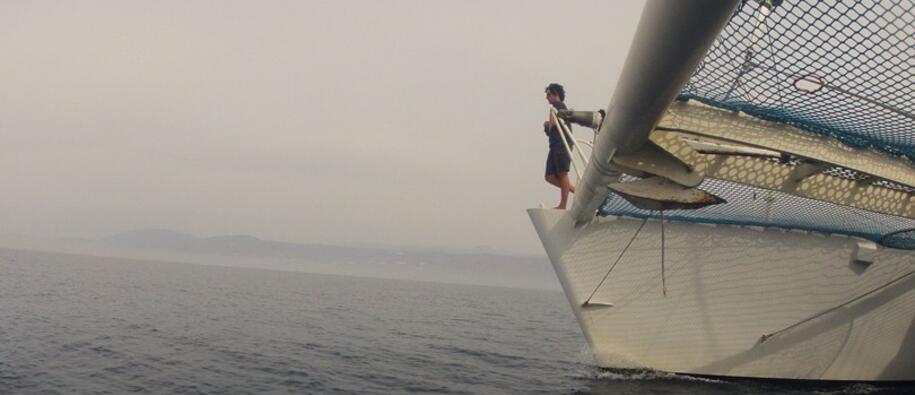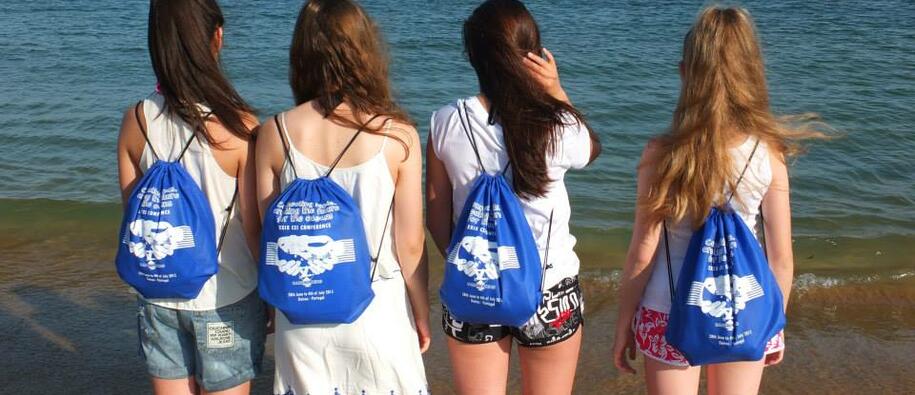Currently available funding
There are currently no calls for proposal.
Programme Summary
Why is the programme needed? Increased awareness about the importance of marine and coastal ecosystems, and the threats posed by climate change and human activity, is pushing governments and public authorities to be more proactive in their approach to marine and coastal management. This concern, along with EU legislation, has been integrated into key legal instruments, with emphasis to the National Water Law, the National Ocean Strategy (NOS), the National Strategy for the Integrated Management of Coastal Waters, and the National-Marine Strategy Framework Directive (National-MSFD). The work developed on the subject of Maritime Spatial Planning, including its future Maritime Spatial Management and Planning Law, have made Portugal one of the few countries where the link between earth and sea is explicitly considered at the strategic level. The large marine area under Portuguese jurisdiction means that there is a need to perform a wide range of different actions in order to ensure the sustainable use of marine resources. These actions include exploration, monitoring, modelling, planning and management measures. To be able to manage the marine environment in an integrated manner, there is a need to obtain accurate and extensive information on habitats and ecosystems. A key element of the programme is thus to increase the Portuguese capacity for marine environmental monitoring. This includes mapping of particularly critical areas and improved modelling methods and capacity. The wide scope of marine management actions implies a need for enhanced decision-making and planning tools, and increased coordination between the institutions involved. The programme deals with this through the consolidation of marine management systems and through facilitation of data sharing and harmonisation. In order to secure future sound management of the marine and coastal environment, there is a need to raise the general awareness on the importance of the marine environment and marine resources. Also, it is necessary to continually update the expert knowledge of administrators and scientists. What will the programme achieve and who are the beneficiaries? The overall aim of the programme is to obtain and secure Good Environmental Status (GES) in the Portuguese marine and coastal waters. The roll-out of the Marine Environmental Management System (MEMS) to all four Portuguese sub-regions under the programme will support decision-making processes and enhance the integrated management and planning of marine and coastal areas. The monitoring capacity will be increased by way of the acquisition and refurbishing of a marine research vessel and mobile monitoring units. Moreover, the programme will introduce better methods of modelling thus increasing the capacity to predicting the future status of the marine and coastal waters. At the moment, marine data are dispersed among various authorities and scientific communities. The programme will address this through the gathering all relevant information in one database simultaneously linking the data to geographical information. The information will be made widely accessible and will also be shared internationally. Finally, the programme will increase the general awareness on marine issues among young people through various local initiatives and ensure training of marine experts. The programme will benefit public administration, scientific environments, enterprises/entrepreneurs, NGOs and the general public. How will it be achieved? The programme is focused on activities relating to marine and coastal management, including: - Development of the national Marine Environment Management System (MEMS) covering all four marine sub-regions in Portugal; - Acquisition and fitting of a Dynamic Positioning (DP) research vessel with marine surveying equipment for fisheries research and oceanographic, hydrographical and biological research; - Increased mobile equipment capacity, such as buoys, for monitoring of the marine and coastal environment; - Targeted mapping and monitoring of three critical areas in line with the EU Water Strategy Framework Directive (MSFD); - Integration of information services and surveillance systems on human activities at sea, the marine environment and the atmosphere including linking the data to geographical information; - Harmonisation of hydrological databases currently spread over several public and scientific institutions; - Providing data input to two major international marine data sets or geo-databases; - Guidelines and training on the EU Marine Strategy Framework Directive for up to 450 experts; - 15 local awareness raising events for school children building on the existing “Ocean Literacy Website”How will bilateral relations be strengthened? The programme will strengthen cooperation between Donor State and Portuguese entities. In lieu of a Donor Programme Partner, the donor project partners, i.e. the Norwegian Institute for Marine Research (HI/IMR) and the Norwegian Mapping Authority will assist in the bilateral activities. This will contribute to consolidation of bilateral relations in the field of marine and coastal management. Who can apply for funding under this programme? The eligible applicants include public authorities, the scientific community, enterprises/entrepreneurs and NGOs. There will be six open calls on improvement on marine monitoring, development of modelling services and sensing/monitoring equipment, data integration and training. The programme also includes one Small Grant Scheme on general awareness raising.What are the partnership opportunities? There are good partnership opportunities in the programme under the six calls for project proposals. The first call will be published during the first quarter of 2014 with further calls through 2014 and early 2015. The Small Grant Scheme which will be published in fourth quarter of 2013. The calls are open for bilateral partnerships.

